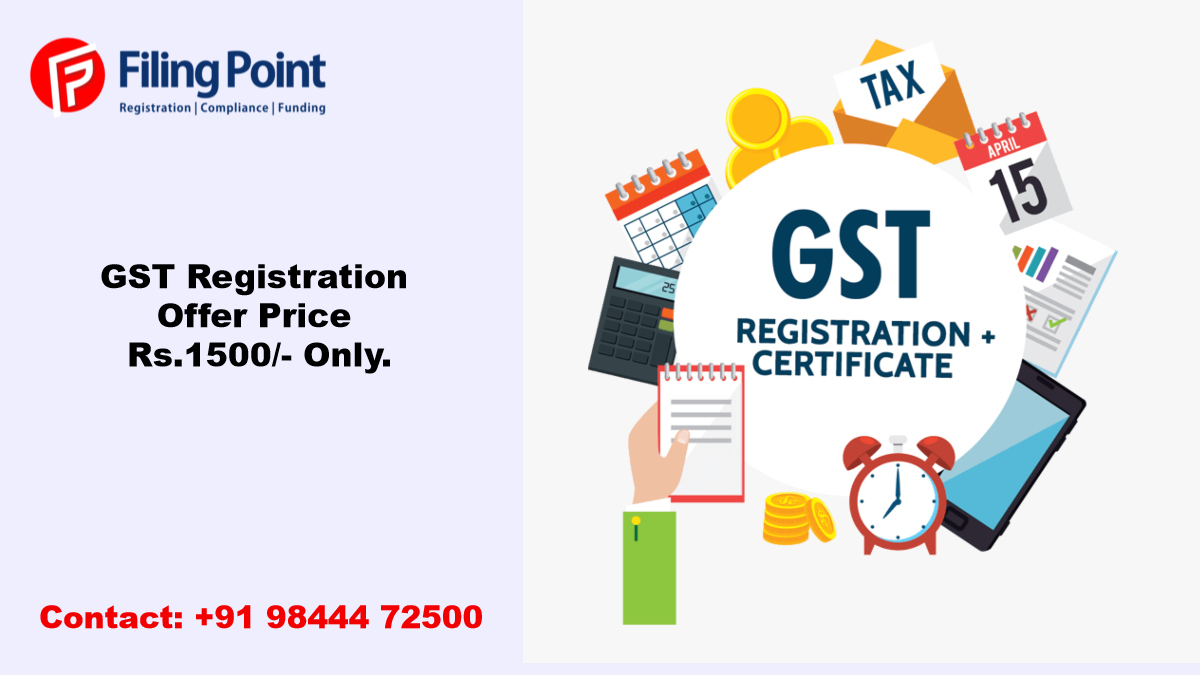Browsing the Complexities of GST Registration: Specialist Tips and Ideal Practices for Easier Conformity
Navigating the intricate landscape of Goods and Provider Tax (GST) enrollment requires an eager understanding of the advancing regulatory structure and precise interest to detail. As companies aim to ensure compliance and prevent risks, professional advice and best methods can work as invaluable compass factors in this facility terrain. From deciphering registration demands to taking advantage of technological devices for structured procedures, the journey in the direction of smoother GST conformity is nuanced and multifaceted. Remain tuned to discover important techniques and understandings that can help companies guide with the complexities of GST registration with finesse and self-confidence.
Recognizing GST Registration Requirements

Furthermore, businesses have to collect and prepare the required documentation, such as evidence of identity, address, organization consolidation, and savings account information, prior to starting the GST enrollment process. Falling short to offer exact information or satisfy the enrollment due dates can result in fines or various other legal repercussions. For that reason, services ought to stay educated concerning the details GST enrollment demands appropriate to their procedures to maintain conformity and prevent potential issues.
Organizing Important Paperwork
Organizations embarking on the GST registration process should thoroughly assemble and arrange the important paperwork needed for entry. The vital documents usually required for GST enrollment include evidence of organization registration or consolidation, address and identity proofs of the organization proprietors or companions, checking account details, evidence of major workplace, and consent kinds. Making certain that these records are conveniently offered and organized can improve the registration procedure and protect against hold-ups or beings rejected.
To efficiently organize vital paperwork, services must produce a centralized system for saving and classifying the called for documentation (Singapore GST Registration). Making use of digital storage solutions can help preserve simple gain access to and guarantee that documents are firmly kept. Furthermore, developing a checklist of all needed papers can function as a helpful tool to track what has been collected and what is still required for submission

Leveraging Modern Technology for Performance
Enhancing functional effectiveness with technological integration is extremely important for modern services navigating the complexities of GST enrollment. Leveraging technology can improve procedures, minimize errors, and ensure timely conformity with GST regulations. One of the key methods innovation can assist in GST enrollment is through the use of automated software program remedies. These tools can aid organizations track sales, produce invoices, compute taxes, and send returns precisely. By automating these tasks, organizations can conserve and minimize hands-on mistakes time that would or else be invested in recurring administrative job.
Furthermore, modern technology can help with smooth communication with tax authorities. On-line websites and interaction tools allow companies to send papers, deal with questions, and get updates in a much more effective fashion. This not just expedites the enrollment process yet likewise assists in preserving reliable and clear interaction with the relevant authorities.
Additionally, cloud-based storage services give a secure system for companies to store and access their financial data, making certain conformity with GST record-keeping demands. By streamlining information storage space and automating processes, organizations can enhance their total effectiveness and precision in GST registration treatments.
Proactive Conformity Monitoring

To make sure efficient proactive compliance surveillance, services should develop durable internal controls, conduct routine audits, and take advantage of automation tools for real-time monitoring visit this site right here of GST transactions. Normal training sessions for workers on GST conformity demands can also aid in creating a society of compliance within the company. In addition, engaging with tax obligation experts or experts can provide useful insights and support on navigating intricate GST guidelines.
Engaging With Professional Consultants
Involving experienced tax professionals can dramatically boost a business's understanding and conformity with intricate GST guidelines. Professional specialists bring a wide range of knowledge and experience to the table, assisting organizations navigate the complexities of GST enrollment easily. By leveraging their competence, firms can ensure accurate filings, reduce the threat of errors, and remain current with the current regulative adjustments.
When involving with expert specialists, it is necessary to choose experts with a solid track document in GST conformity (Singapore GST Registration). Look for specialists who have a deep understanding of the pertinent regulations and regulations, in addition to experience collaborating with organizations in your sector. Reliable communication is essential in this partnership, so see to it to clearly specify your assumptions and establish normal touchpoints to review progress and resolve any issues
Moreover, specialist professionals can provide useful understandings and advice on enhancing your tax approach, identifying possible cost-saving possibilities, and streamlining your compliance processes. In general, purchasing specialist consultancy services can go a long means in guaranteeing smoother GST compliance and avoiding costly blunders.
Verdict
In verdict, navigating the complexities of GST enrollment needs a detailed understanding of the needs, organization of important documentation, leveraging modern technology for performance, aggressive go to this web-site conformity surveillance, and involvement with specialist professionals. By adhering to these ideal techniques, organizations can make sure smoother compliance with GST guidelines and prevent prospective fines or fines. It is important to remain notified, proactive, and attentive in managing GST enrollment to maintain conformity and support economic stability.
To ensure compliance with tax obligation guidelines, businesses need to completely understand the detailed demands for GST enrollment. Goods and Solutions Tax Obligation (GST) is a value-added tax imposed on most products and solutions in a country, making it critical for companies to sign up for GST to avoid legal effects.Furthermore, services have to gather and prepare the needed documentation, such as proof of identification, address, organization consolidation, and financial institution account details, prior to launching the GST registration process. Organizations ought to remain educated about the certain GST registration demands relevant to their operations to maintain conformity and stay clear of possible concerns.
The key documents normally required for GST enrollment include proof of company registration or consolidation, address and identity proofs of the company owners or companions, bank account details, proof of principal place of company, and permission forms.
Comments on “Necessary Guide to Singapore GST Registration for New Companies”